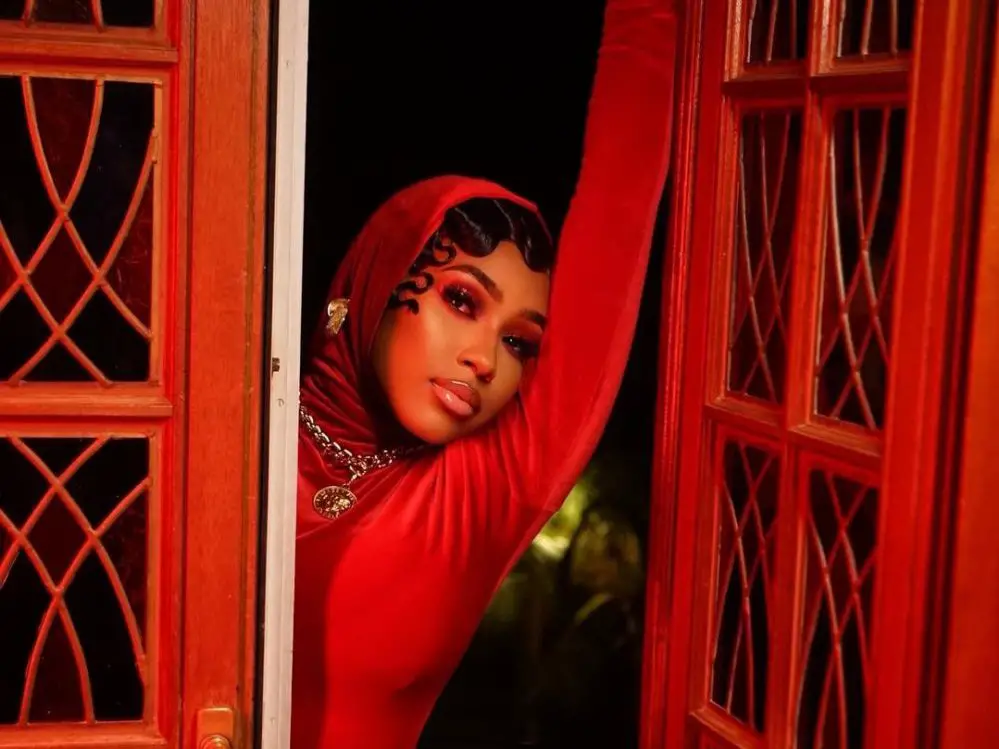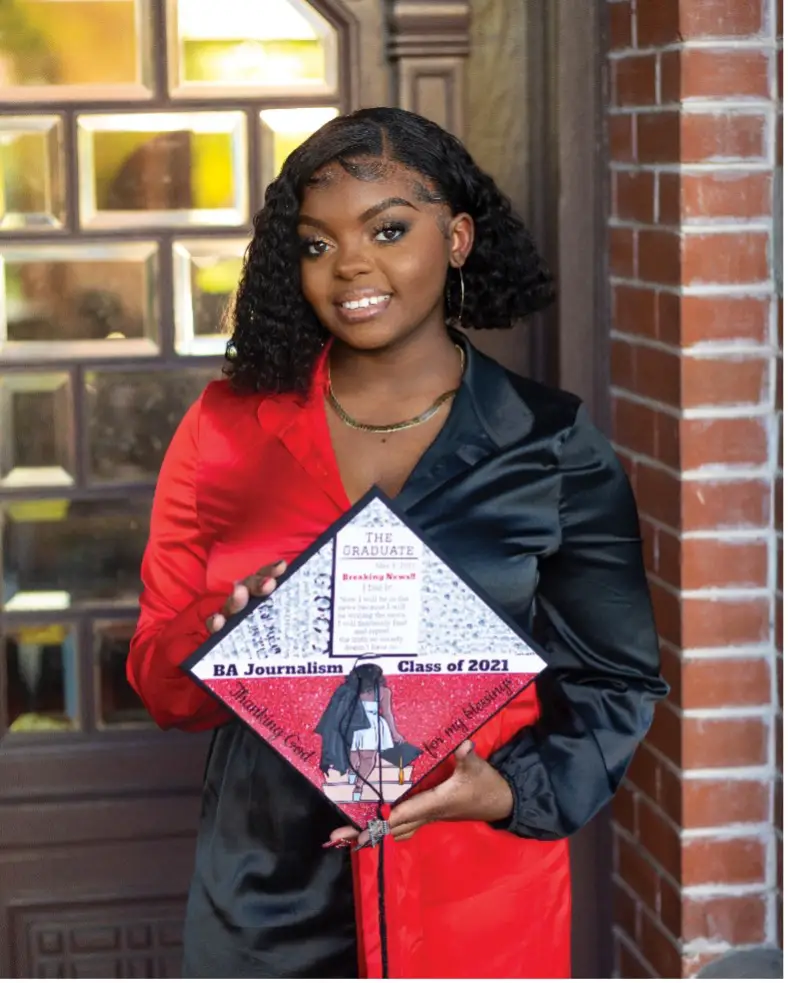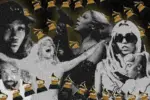Yung Miami — real name Caresha Brownlee — released her new solo single “Rap Freaks” on Oct. 29, and the song’s content has turned heads and dropped jaws.
The City Girls rapper name-dropped various rap creatives in her new fiery single, including Moneybagg Yo, Megan Thee Stallion, Diddy, Lil Durk, DaBaby and more. The nearly two-minute song is riddled with sexually suggestive propositions aimed at the named celebrities. Some fans found the name-drops to be disrespectful, especially to artists like Moneybagg Yo and Lil Durk who are currently in committed relationships.
Fans assumed there may be some bad blood between Miami and the rappers’ significant others, and they went on the hunt for some drama. One Twitter user caught the attention of Ariana Fletcher, Moneybagg Yo’s girlfriend, with a post fishing for her response to the song. Fletcher responded suggesting that Miami may have contacted her and asked for permission before including Moneybagg’s name in her rap.
She been called me about that song and I been heard it. https://t.co/2VokcN2pxb
— KYLESISTER (@AriTheDon) October 29, 2021
In addition to the suggestive lyrics, Miami released a seductive video for “Rap Freaks.” The video places Miami and other women in a raunchy red-and-black “Fifty Shades of Grey”-inspired setting. Whips, leather outfits, chains, blindfolds and cages were used throughout the scenes. Framed photos of a select few male rappers also made brief appearances during the short video.
Vulgar songs like “Rap Freaks” may be the reason some parents are fed up with today’s female rappers. Megan Thee Stallion, Cardi B, City Girls and Nicki Minaj are just a few female rappers who have profited from making provocative music videos and creating rap songs that sexualize women.
On March 14 of this year, the CBS television network aired the 63rd annual Grammy Awards. Among the many celebrities who were granted the honor of performing live at the awards show, Cardi B and Megan Thee Stallion used the opportunity to perform their hit single “WAP.” Their steamy performance included a strip pole, slight twerking, floor humping and a moment when the two women nearly straddled each other. A lot of people were furious following the performance.
The Federal Communications Commission reportedly received over 1,000 complaints about the Grammy performance, claiming that it was wildly inappropriate for younger audiences and contained “pornographic content.” The Parents Television and Media Council also made a statement scolding CBS for allowing the performance to happen knowing that younger audiences tune in to the Grammys with their parents.
Although parents have good intentions and want to protect their children from being exposed to certain messages too soon, it will not make much difference for them to complain to broadcasting agencies about anything their children may have been exposed to while watching television.
Songs like “WAP” and “Rap Freaks” were intended for adult ears and their visuals were intended for adult eyes only, but the artists have no control over who hears or views their content. These female rappers are paid to entertain mature audiences, not cater to the sensitivities of minors. The only thing that musical artists can do is place parental advisories on their videos, but beyond that, it is the responsibility of the parents to monitor what their children watch and listen to.
The biggest issue may be that parents are so focused on song lyrics and the external appearances of rappers that they fail to see the bigger picture. Female rappers like Cardi B, Miami and Megan Thee Stallion are all confident in their sexuality, and they strive to embrace and promote the strength and beauty of women. Often, men in the rap industry degrade women, but the women of rap use their music to prove that there are so many more levels to them than their physique.
There may also be times when female rappers just want to have fun and get creative with their music and videos, as Miami did with “Rap Freaks.” Miami went live on Instagram and explained that the song was not supposed to offend anyone or be taken seriously. The Florida-born artist just wanted to have fun and pay homage to all the men who she feels are dominating the rap industry right now.
https://www.instagram.com/p/CVq2o7lsJRC/
In most instances, music artists who are signed to record labels do not have creative control over what music or visuals are made available to the public. Record labels can often be like the military — when they tell someone to do something, it better get done with no questions asked. When artists are under contract, they have little say in what happens on stage, in music videos or in the music studio.
At the end of the day, parents cannot expect the music industry to parent their children. Female rappers are not expected to put out kid-friendly music like JoJo Siwa or Alaya High. Parents cannot get mad at artists for expressing themselves and putting out body-positive music. If parents genuinely want to shield their children from inappropriate music, they will have to actively monitor their children’s time online and what they watch on TV, even if that means putting parental locks on certain channels or websites.
However, it is nearly impossible to shield children from anything today because they spend their entire day with their peers at school, and once they get home, they spend hours of their time online. If children are exposed to certain messages too early, parents need to either look at who their child is spending their time with or reflect on their parenting.
People can complain about women in the rap industry as much as they want, but female rappers are going to continue to unapologetically twerk, embrace their sexualities and rap about various adult matters. Whether they like it or not, parenting committees will not be able to censor the entertainment industry no matter how hard they try.

















